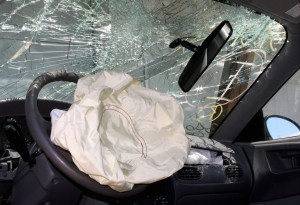Nissan agreed to pay $97.7 million to owners of its vehicles equipped with deadly Takata Corp. airbags to offset economic losses on the 4.4 million cars in the U.S. The move is part of a settlement with those owners.
The automaker said in a statement that it was not admitting fault under the settlement, which is similar to that of other companies that used the potentially lethal airbags.
In June, a federal judge in Miami granted preliminary approval to settlements with Toyota Motor Corp., Subaru Corp., BMW AG and Mazda Motor Corp. totaling $553 million and affecting 15.8 million vehicles with Takata inflators, according to Reuters.
Honda Motor Co. and Ford Motor Co. haven’t come to any agreements with owners yet. The airbags are responsible to 18 deaths worldwide and 180 injuries and basically drove the company into bankruptcy.
(Another 2.7 million Takata airbags recalled. To find out why, Click Here.)
In addition to cash outlays to owners, Reuters reports that the settlements have included other inducements to get owners to bring their vehicles in to get the repairs completed, including out-of-pocket expenses; a possible residual distribution payment of up to $500; rental cars for some owners; and a customer support program for repairs and adjustments, including an extended warranty.
Nissan said just 29.9% of its vehicles had been repaired, and that the settlement is “intended to significantly increase customer outreach and to accelerate recall remedy completion rates for Takata airbag inflator recalls.”
Takata agreed to plead guilty to criminal wrongdoing and to pay $1 billion to resolve a U.S. federal investigation into its inflators, according to Reuters.
(Click Here for more about Takata’s bankruptcy filings.)
The supplier agreed to set up two independently administered compensatory funds: one for $850 million to compensate automakers for recalls and a $125 million fund for individuals injured by its airbags who had not already reached a settlement.
Complicating all off these efforts is the fact that the recall repairs that have been completed may have be done again. The replacement kits may contain materials for the materials that have questions about their safety.
If the airbag inflators fail or are deemed unsafe, the replacements will need to replaced. According to Reuters, some industry consultants, explosives experts and former employees question whether the workaround guarantees safety over the long-term.
(Another 2.7 million Takata airbags recalled. To find out why, Click Here.)
“Absent proof that the other desiccated inflators are safe, they will also be subject to recall,” the U.S. National Highway Traffic Safety Administration (NHTSA) said in a statement last week. The agency declined to comment on the risk that additional inflators may be subject to recall.

